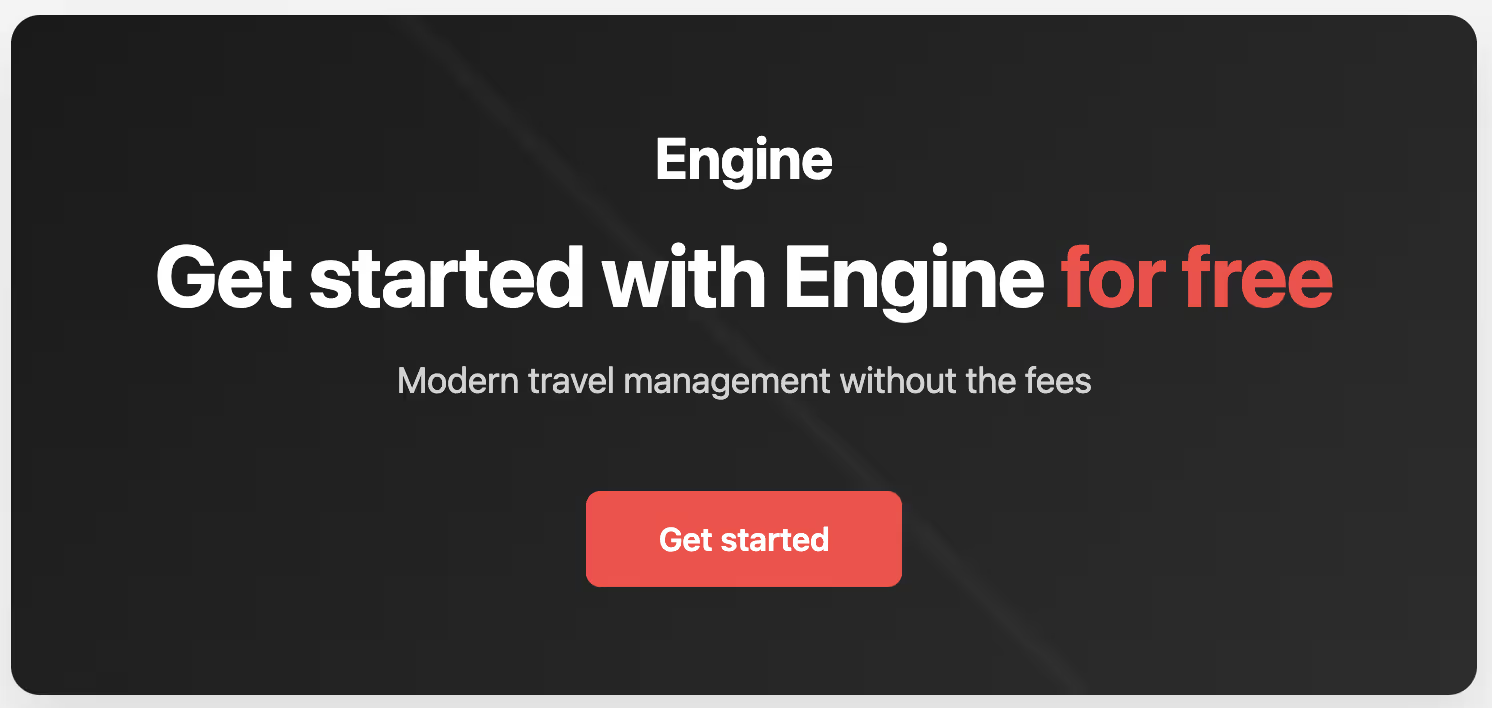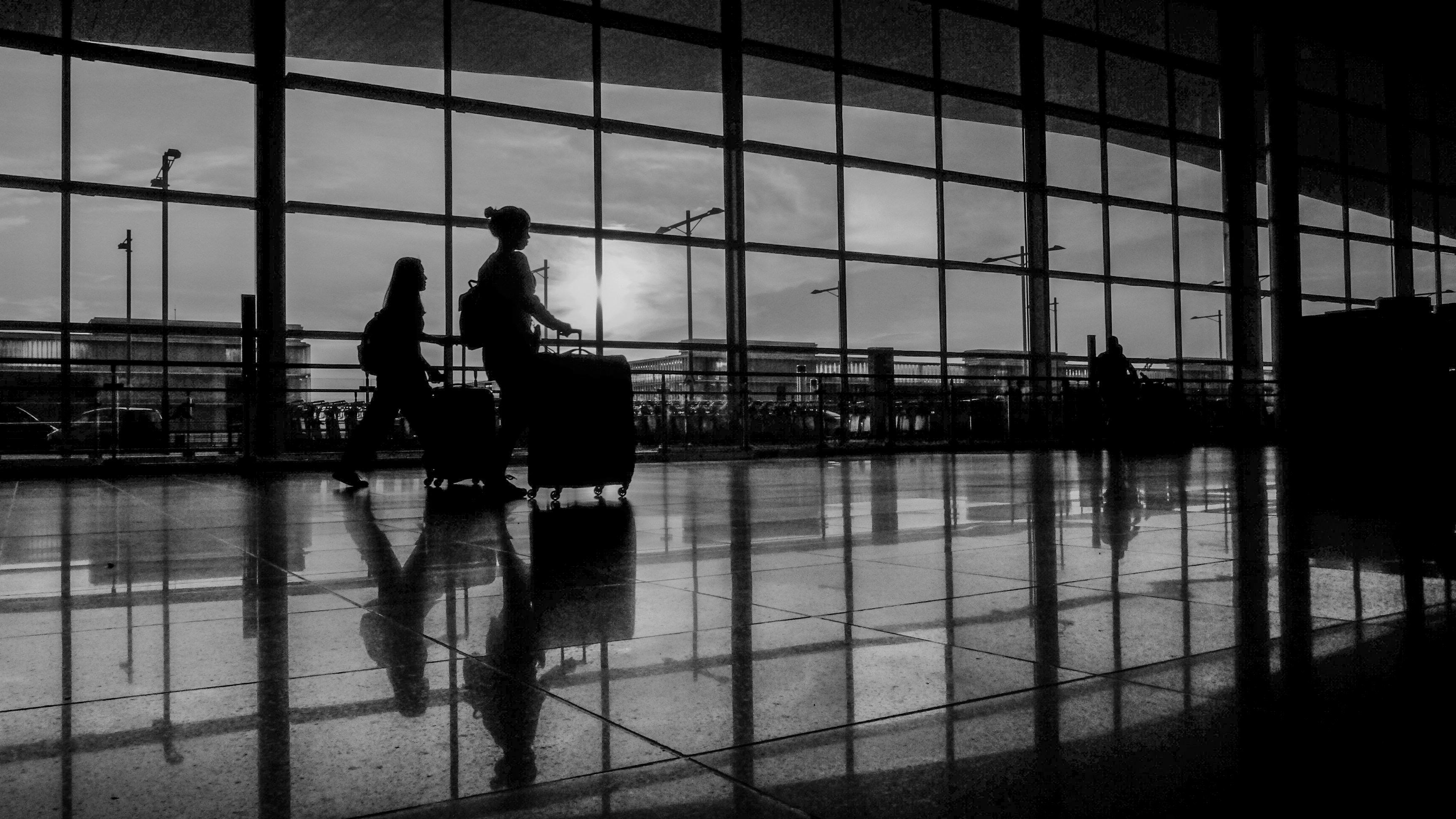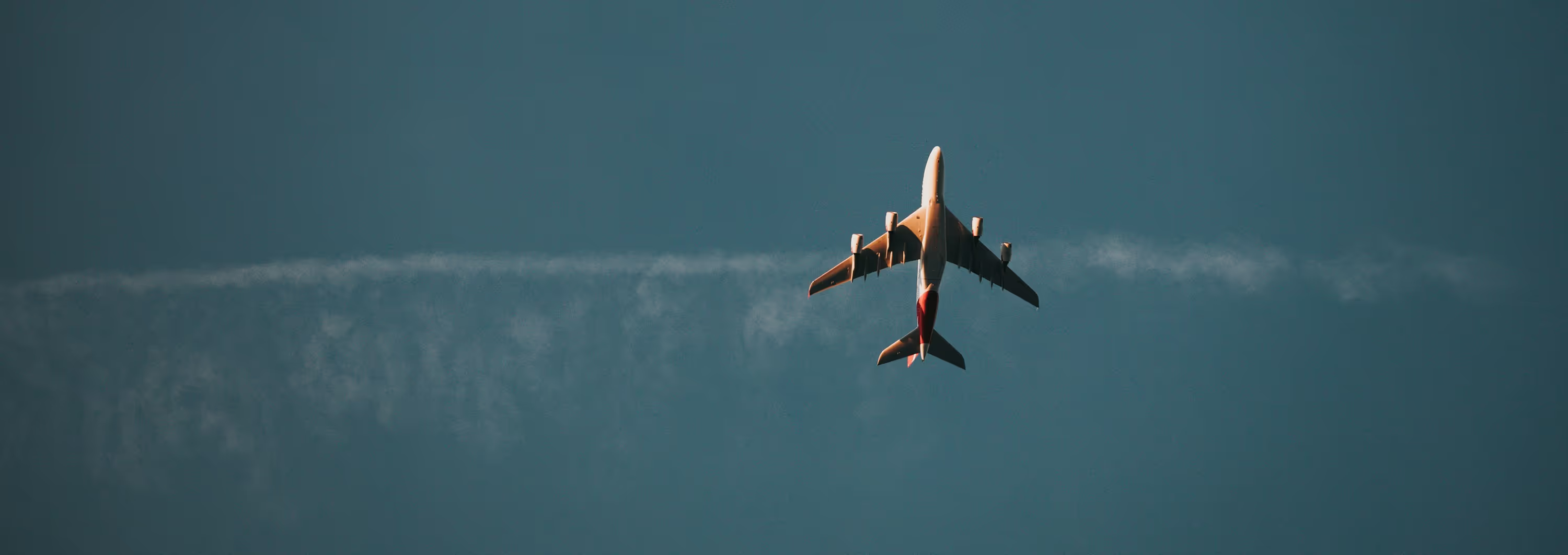Business Trip Travel Insurance: What You Must Know

The compressor at the North Dakota pipeline site just failed, extending the maintenance crew's stay by five days. Hotel costs are piling up, one technician twisted his ankle on the remote site, and the medical evacuation helicopter isn't covered by standard travel insurance.
The crew is stuck 200 miles from the nearest hospital, extended accommodations are draining the project budget, and nobody knows who's responsible for the extra costs.
The problem? Generic policies were designed for office workers, not technicians working around oil rigs, power plants, and manufacturing facilities.
When crews get stranded or injured at industrial sites, most policies exclude critical coverage. One unprotected incident could cost tens of thousands of dollars in helicopter evacuations alone — money that comes straight from your project’s budget, while your injured worker gets zero coverage.
Why Standard Business Trip Travel Insurance Fails Field Workers
If you manage project-based crews, you know that standard travel insurance doesn't work for real fieldwork.
But when you finally find coverage that protects your welders working on remote pipeline sites, you can't believe you've been burning money on policies that abandon your workers exactly when they need help most!
That's why you need travel insurance built specifically for blue-collar operations. Generic policies exclude manual labor, hazardous work environments, and extended project stays.
When your concrete crew gets stuck due to equipment failure, standard policies offer zero reimbursement for extended hotel stays—but Engine's FlexPro coverage flips this with guaranteed refunds for timeline changes that strand your workers, protecting your budget exactly when standard insurance abandons you.
The coverage gaps hit hardest during real scenarios: construction weather delays that extend stays by weeks, oil rig evacuations requiring specialized medical transport, and maintenance emergencies at remote manufacturing sites.
Engine's 24/7 support handles emergency rebookings that insurance companies won't touch while your coverage claim sits in review.
Essential Travel Insurance Coverage Types for Crew Travel
Your travel business insurance needs differ drastically from office workers. Focus on coverage categories that address real field conditions, not theoretical risks. Here's how to identify the right coverage types:
Trip Cancellation and Interruption Coverage
Trip cancellation and interruption coverage must include project delays, permit issues, and weather emergencies. Standard policies exclude these, but your crews face them constantly. Look for policies that specifically cover "job site delays due to industrial conditions" and "project timeline changes beyond your control."
Verify the policy explicitly covers "work-related project delays" and "construction/industrial site disruptions."
Medical and Emergency Evacuation Coverage
Medical coverage needs emergency evacuation from remote sites, not just standard hospital visits. When your telecommunications crew works on rural tower installations, the nearest trauma center might be 100 miles away. Choose plans that include helicopter evacuation and specialized transport coverage.
Minimum $100,000 medical coverage and $250,000-$500,000 evacuation coverage for remote work locations. Consider $1 million evacuation limits if your crews work in extremely isolated areas like offshore rigs or Arctic installations.
Equipment and Tools Protection
Equipment breakdown coverage should extend to tools, safety gear, and specialized equipment your workers carry with them. This covers theft, loss, or damage to your crew's work gear during travel. Many alltrips premier plan options exclude work-related equipment.
Choose plans with personal equipment coverage of $5,000-$10,000 minimum. Standard $500 baggage limits won't replace your crew's tools.
Accommodation Protection
Accommodation protection covers extended stays, crew relocation, and booking changes when projects shift. Your crews don't follow hotel reservation patterns—they need flexibility for unpredictable timelines and group relocations.
Look for policies with unlimited trip modification benefits rather than fixed change fees. Many annual business travel policies offer unlimited changes within coverage periods, while single-trip policies often charge $25-$75 per modification.
Inadequate coverage leaves workers stranded without medical care and companies facing massive bills. Without proper coverage, this comes directly from project budgets.
Engine's Incidental Coverage and Direct Bill features handle accommodation protection without personal credit cards or authorization hassles.
Calculate coverage amounts based on your longest typical delays, largest crew sizes, and most remote locations. Policy limits should exceed your highest single-incident costs, with deductibles low enough to avoid budget strain during emergencies.
Evaluate Policies for Blue-Collar Work Environments
Compare travel insurance business policies using criteria specific to field work environments, not generic business travel metrics. Use these evaluation frameworks to choose the right protection:
Work Environment Assessment: Review coverage territory carefully. Domestic policies might exclude rural areas where your crews work. International coverage becomes critical for cross-border projects, but verify rural area limitations within covered territories.
Policy Exclusions Review: Examine exclusions specifically. Manual labor exclusions eliminate coverage for most field workers. Industrial site exclusions void coverage at manufacturing plants, oil rigs, and construction sites. Contractor versus employee coverage affects independent workers and subcontractors.
Claims Process Evaluation: Claims processes must work for field conditions. Mobile access allows crews to file claims from remote locations. Quick payouts prevent cash flow problems when covering emergency costs upfront. Field-friendly documentation requirements accommodate workers without access to scanners or administrative support.
GoReady Travel Insurance and Similar Options: When comparing options like GoReady travel insurance or other providers, focus on blue-collar specific features rather than standard business travel benefits. Look for providers that understand industrial work environments and remote location challenges.
Calculate Cost-Benefit for Your Operations
Running project budgets means watching insurance "surprises" destroy your margins faster than anything else.
But when you finally track your real delay costs against premium expenses, you can't believe how much money you've been leaving on the table! Smart operations managers calculate insurance value against real project risks, not sales brochures.
Track Your Real Delay Patterns
Track average delay costs across your projects. Weather delays, equipment failures, and permit issues create predictable patterns. Medical expenses from remote locations cost significantly more than urban incidents. Document these patterns to justify insurance investment.
Premium cost analysis should compare per-employee versus blanket coverage options. Project-based coverage might cost less for seasonal operations.
Group policies often provide better rates for larger crews.
Calculate Your Break-Even Point
Break-even calculations show when insurance pays for itself. If your annual delay costs exceed annual premiums, insurance makes financial sense. Factor in peace of mind and worker protection value beyond pure financial metrics.
Without proper cost analysis, you'll either overpay for unnecessary coverage or face massive unexpected expenses. Companies that skip insurance calculations face budget overruns averaging 15-20% when major incidents occur.
Evaluate Self-Insurance Options
Self-insurance evaluation involves setting aside funds versus purchasing coverage. Consider cash flow impact, investment opportunity costs, and risk tolerance. Companies with strong cash reserves might self-insure smaller risks while buying coverage for catastrophic events.
Monitor Coverage Performance and Adjust Protection
Monitor insurance performance and adjust coverage based on real experience, not insurance company recommendations. Claims tracking reveals incident patterns, coverage gaps, and successful claims that justify continued investment.
Policy optimization requires annual reviews, coverage adjustments, and vendor negotiations. Insurance needs change as operations expand, contract, or shift geographic focus.
Without monitoring, you'll continue paying for ineffective coverage while remaining exposed to real risks. Regular review ensures insurance investment matches operational needs.
Workforce feedback provides ground truth about coverage effectiveness:
- Field worker experiences with claims
- Claim satisfaction ratings and process issues
- Real-world coverage gaps that spreadsheets miss
Engine's reporting helps you identify travel patterns that inform your insurance decision-making.
Protect Your Crews and Operations with Engine
Right insurance protects both workers and project budgets, but only when matched to blue-collar operational realities.
Badly fitted insurance policies potentially cost thousands in unprotected expenses and put your crews at risk. The right insurance covers what standard policies won't.
Engine reduces travel disruptions that can lead to expensive insurance claims.
Don't let inadequate travel logistics compound your insurance risks. See how Engine's field-tested platform protects your crews and simplifies your operation. Schedule a demo today to discover why leading blue-collar companies trust Engine for their critical travel needs.

Frequently Asked Questions
Do I need separate travel insurance if my company already has workers' compensation coverage?
Workers' compensation typically only covers on-the-job injuries at your permanent workplace, not travel-related incidents or accommodation costs when projects extend unexpectedly. Business trip travel insurance fills the gaps for medical emergencies during travel, equipment theft, and timeline changes that workers' comp doesn't address.
Can independent contractors and subcontractors be covered under our group travel insurance policy?
Most standard group policies exclude independent contractors, but many insurers offer rider options or separate contractor coverage at additional cost. Check your policy language specifically for "employee vs. contractor" definitions, as this exclusion can leave a significant portion of your workforce unprotected.
What happens if my crew gets injured while working overseas on a project?
International coverage becomes critical for cross-border work, as domestic policies often exclude overseas incidents entirely. Look for policies with specific international medical evacuation coverage and verify that the destination countries fall within your coverage territory, especially for remote locations where medical facilities may be limited.







.avif)


.jpg)


.jpg)




.avif)





.jpg)


.avif)






.avif)

